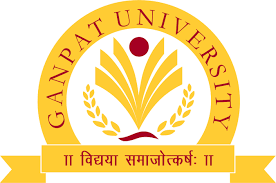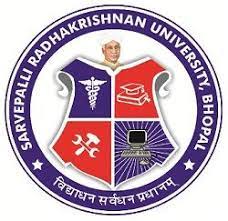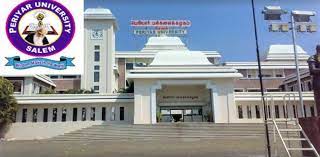The Sanskrit Ph.D. course focuses on the literature and culture of the ancient Hindus. The literature included in the Ph.D. course includes the Purana and Vedanga, as well as the Sanskrit language itself. The program is typically 5 to 6 years long but may take longer. The course is a challenging, but rewarding experience. The best part about it is that it is widely recognized by universities around the world.
Those looking to pursue a Ph.D. in Sanskrit need to start their search for a university or college that offers such a program. Harvard University is a highly ranked Ivy League Institute that offers a Ph.D. course in Sanskrit. This program emphasizes the study of South Asian texts, traditions, and culture. You can pursue a doctorate in Sanskrit from Harvard's department of Asian Civilizations. There are also nonprofit organizations like Sanskritbharti, which teaches the language to all strata of society.
Ph.D. in Sanskrit Eligibility
Candidates who want to take admission in Ph.D. must have a post-graduate degree in Sanskrit and its relevant discipline with at least 55% marks from a recognized university and must have passed the national level entrance examination or university level entrance examination. National level entrance exams like UGC NET / UGC CSIR NET / GATE / SLET or University entrance exams consist of written tests and personal interviews.
The Benefits of a Ph.D. in Sanskrit
There are many advantages of a Ph.D. in Sanskrit. Apart from a better job market, a degree can lead to higher opportunities. A candidate must have studied in the same area and must have a minimum of 50% marks in the qualifying examination. The doctoral program also includes writing a dissertation, which is one of the major requirements. In addition, it requires a thesis, which is a major requirement for a Ph.D. in Sanskrit.
The Ph.D. in Sanskrit program at Brown University focuses on the study of Sanskrit literature. The program uses the same approach as the Classics program in Greek and Roman literature. The Sanskrit texts are analyzed in a broader cultural and historical context. A student must have a solid background in the Sanskrit language to successfully complete the course.
The program is available in regular and online modes. A person can pursue a Ph.D. in Sanskrit in two ways. The first option is through a regular degree, which requires a master's degree. This will open doors to several career options. It will give you the knowledge and skills needed to be a scholar and pursue a Ph.D. in Sanskrit.
The Career and Job Opportunities of a Ph.D. in Sanskrit
There are many job options for Ph.D. Sanskrit graduates. Some are lecturers, researchers, and archaeologists. Others work as translators, content editors, or letter translators. They can also be journalists or teachers. The salary range for these positions depends on the level of expertise in the subject. Applicants with a Ph.D. in the language often earn well above the median wage for their area.
After you graduate with a Ph.D. in Sanskrit, you can choose to work in various fields, including teaching, literature, translation, print media, and more. There are also several other positions for Ph.D. Sanskrit graduates, which include working as journalists, columnists, or interpreting. In addition to teaching, these careers involve various forms of professional development and can range from being independent consultants to being the head of a research institute.
The career opportunities for a Ph.D. in Sanskrit are varied and highly rewarding. After you have obtained your Ph.D., you can work as a teacher in a school or university. You can also work in research fields, including anthropology and archaeological studies. In the United States, many prominent universities offer Ph.D. courses in this ancient language. There are several other fields that a Ph.D. in Sanscrit degree could open up for you.
A Ph.D. in Sanskrit will open up a wealth of opportunities. You can become a professor at a university or college. You can also go into the archaeological field, reading and translating ancient manuscripts. In India, you can become a professor at a university, or work in a museum. If you want to study the ancient language in-depth, you can pursue your Ph.D. in Sanskrit.
The Future Scope of a Ph.D. in Sanskrit
There are a number of different employment options for people with a Ph.D. in Sanskrit, ranging from teaching to publishing and even civil service. Salaries vary greatly, depending on the nature of the position and the amount of experience the person has gained. Most students earn a moderate to good salary as professors or researchers. However, they can also pursue positions in the arts, such as writing or performing in plays.
The field of study is vast, and a Ph.D. in Sanskrit will allow you to delve into the history, literature, and philosophy of the ancient language. During the course of study, you will study the historical context of the language and other areas of its study. This is a unique way to further your knowledge of the language. Additionally, a Ph.D. in the field of Sanskrit opens up a wide variety of career opportunities.
There are many benefits to a Ph.D. in Sanskrit. A Ph.D. in the language will open up new horizons for you. For instance, you can work in a university or teach at a public school. If you love teaching, you can go into an archaeological area. Or, you can use your skills and expertise to research ancient manuscripts or anthropology. The future scope of a Ph.D. in Sanskrit is unlimited.
Ph.D. Research Programme duration
The Ph.D. in Sanskrit course is a minimum of 3 years and a maximum of 5 duration. This depends on the university offering the course.
Fees for research program for Sanskrit
The average fee for Ph.D. in Sanskrit degree is between INR 50000 and INR 500000.
 5 Years
5 Years
 PhD
PhD
 Research
Research

































 back
back